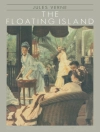In ‘Thy Soul Shall Bear Witness, ‘ Selma Lagerlöf intricately weaves a poignant narrative that explores themes of faith, redemption, and the profound connections between humanity and the divine. Written in her signature lyrical style, the novel contrasts the harsh realities of life with the essence of spiritual awakening. Set against the backdrop of early 20th-century Sweden, Lagerlöf employs rich symbolism and character-driven storytelling to depict the internal struggles of her protagonists as they confront their beliefs and the inevitability of death. This work resonates with the literary context of the time, reflecting the burgeoning interest in spirituality and moral philosophy following the upheavals of the previous century. Selma Lagerlöf, the first woman to win the Nobel Prize in Literature, has long been celebrated for her ability to blend folkloric elements with profound themes. Her own experiences with faith and the complexities of human emotion greatly influenced her writing. Raised in the Swedish countryside, Lagerlöf’s connection to nature and rural life permeates her work, allowing her to articulate deep philosophical questions in accessible language, making her narratives both evocative and relatable. ‘Thy Soul Shall Bear Witness’ is a compelling read for those interested in exploring the intersection of personal belief and societal expectations. Lagerlöf’s storytelling invites readers to reflect on their own spiritual journeys while providing a timeless examination of the human condition. This novel is not just a tale but a catalyst for introspection, making it a worthy addition to any literary collection.
عن المؤلف
Selma Lagerlöf (1858–1940) stands among the luminaries of Swedish literature. The first female writer to win the Nobel Prize in Literature in 1909, Lagerlöf’s narratives blend realism with fantasy, exploring the complexities of human nature and rural Swedish life. Her enduring literary legacy is often associated with her unique ability to interweave folklore with social issues. ‘Thy Soul Shall Bear Witness’ (‘Körkarlen, ‘ originally published in 1912), perhaps one of her most haunting works, delves into the supernatural while simultaneously invoking a profound moral discourse. Lagerlöf’s writing style is distinctive for its lyrical prose and rich descriptions that transport readers to the landscapes and soul of Sweden. Lagerlöf’s contributions extend beyond her own work, as she also played a significant role in helping to preserve the Swedish folk story tradition. An innovative figure in literature, Lagerlöf was also the first woman to be granted membership in the Swedish Academy. Her works have left an indelible mark on Swedish culture and continue to attract readers worldwide, drawn to her storytelling prowess and the depth of her characters.












